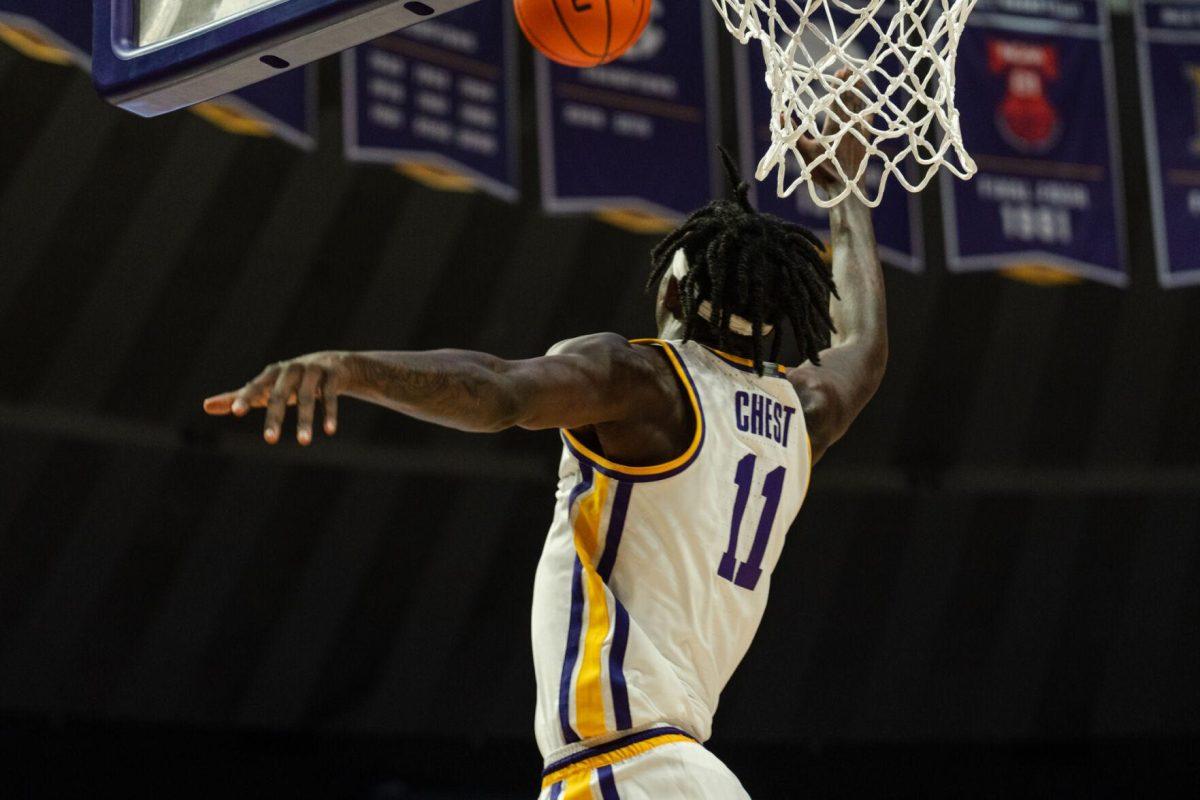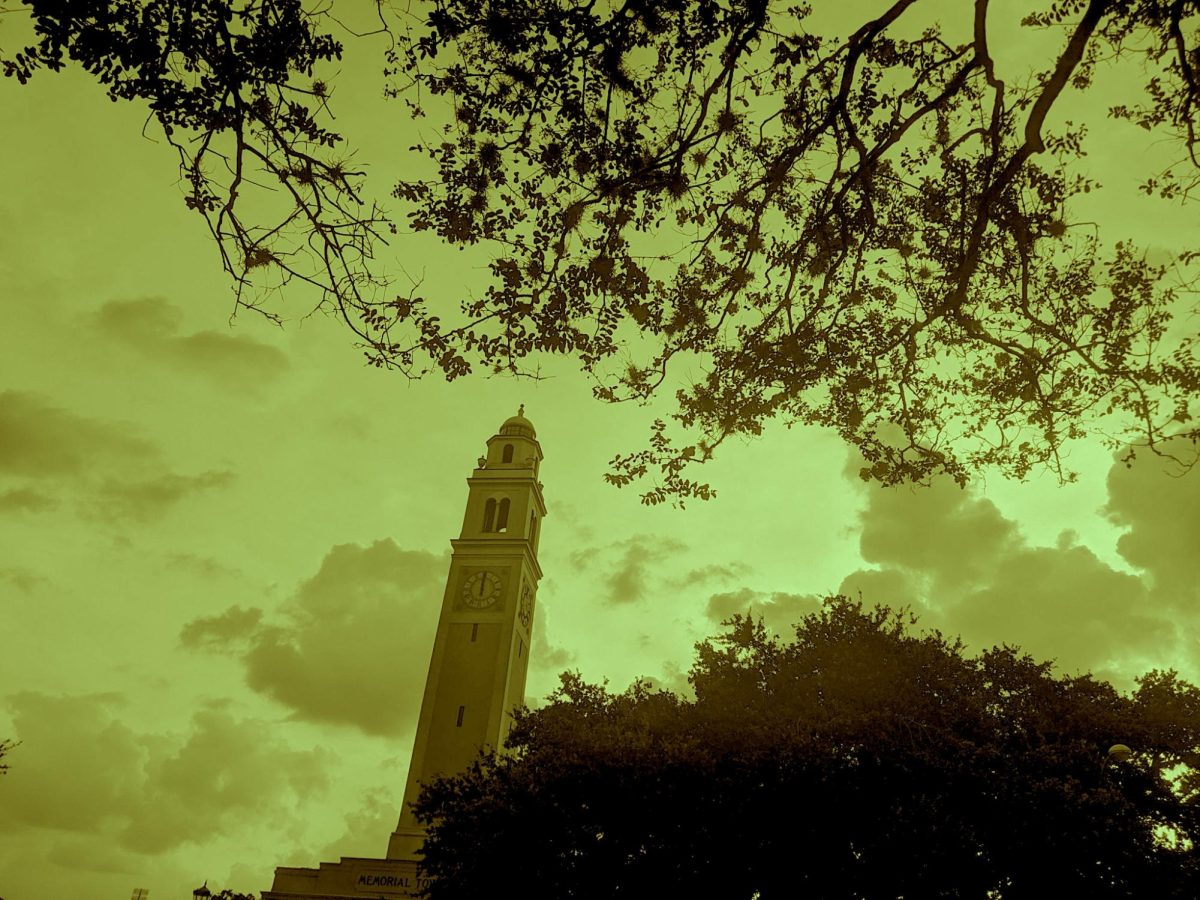It was a sunny, windy Friday afternoon, spring break had just begun and I was shipwrecked on a desert island. Instead of competing with the throng fleeing Baton Rouge – I never realized the mass of people itching to leave – I decided to get decadent by stocking up on romantic movies to last the week.
For the past few months, I had been engaged in a futile attempt at pleasure-seeking, jumping from action to drama films to no avail – most ending up disappointments. Now I was going simple, back to the basics, if you will. Except the basics did not really involve romance. Adam never wooed Eve.
After my wake, store shelves were suddenly laid bare of “Funny Face,” “40-year-old Virgin,” “Elizabethtown,” “Grosse Point Blank,” “Pillow Talk” and “Garden State.” Under the influence of Wong Ka-Wai, in solidarity with John Lennon, I intended to live my life by proxy, through fictional dalliances on 35-mm film. I was in the mood for love; after all, love was all I needed.
I began with “Funny Face,” which joined an aged Fred Astaire to a nubile Audrey Hepburn. In the film, a publisher for a trendy fashion magazine looks for its it-girl. A girl equal parts Athena and Aphrodite, a 50s version of Kate Beckinsale, if you will. Obviously, Hepburn got to be that lucky someone.
“Funny Face” belongs in Hepburn’s minor canon. While the cast might have had fun making the film, they were unable to translate their levity into a compelling romance. A large part of the humor felt forced, especially the neologisms “empathicalism” and “bozazz.” But since I cannot afford to get angry at the adorable Hepburn, my only gripe is why she preferred roles with older men. Was she searching for an elusive father figure?
“Grosse Point Blank,” on the other hand, belongs in vintage John Cusack land. Here, a professional assassin returns to Detroit to execute a contract at the same time his high school throws its 10-year anniversary homecoming party. I will be the first to admit the plot was implausible and ludicrous, but who cares? When the duo of Cusack and Minnie Driver throw sparks on screen and the lovely soundtrack with material from the Clash and the Specials plays in the background, what more could I want?
Still I don’t believe a girl could date the guy who ditched her on prom night. Are things different in Detroit?
“Elizabethtown” featured Orlando Bloom as a designer who had lost a huge chunk of money on a failed shoe concept. On his way home to attend his dad’s burial, he meets a spunky air hostess, from whence a relationship blossoms. Though Bloom did not fit the romantic lead mold, the film was redeemed by the irrepressible Kirsten Dunst and the smoldering atmospherics of the soundtrack.
I have a question about Susan Sarandon: Why does she seem to be the token actress cast to satisfy the geriatric female quota?
Anyway, all was well with the romantic marathon until I arrived at “Garden State.” I had heard good things about the film, but it failed to connect. I was left cold by the remote characters and their unremarkable circumstances.
It appears director Zach Braff dispensed with plot and sexual chemistry, relying instead on artifice and faux estrangement.
Unfortunately, this exercise in style, especially during the opening sequences, resembled a kid’s first time in Baskin-Robbins – the feast ended in a belly ache. The soundtrack contained lots of indie material; however, without the necessary visual accompaniment, it was all chasing after the wind.
I proceeded to the “40-Year-Old Virgin” – nice quip about black light and space – before ending with the classic “Pillow Talk,” which was definitely the funniest of the bunch. Rock Hudson, a songwriter, and Doris Day, an interior decorator, share a party phone line and hate each other even though they have never met. I loved the conflict between the characters, as well as the joie de vivre and energy both leads brought to their roles. The bright hues lit the screen, embodying the vivacity I already felt from the film.
It was a enjoyable trip, all those films.
Romantic films, one of the most durable of film genres, has evolved from its beginnings in the battle of the sexes to a noticeable penchant for sexual conquest.
Apparently, as women’s liberation declares victory, films progress in the opposite direction.
But that is beside the point. These films are the ones I enjoy best. Maybe romantic films gloss over the intricacies and difficulties in maintaining a relationship, but I believe it is in the service of a greater beauty. Their ability to entertain and enrich is unlimited; their inexhaustible fount of possibilities can never be exhausted.
—-Contact Freke Ette at [email protected]
Timeless romance films surpass action and drama
By Freke Ette
March 26, 2008





